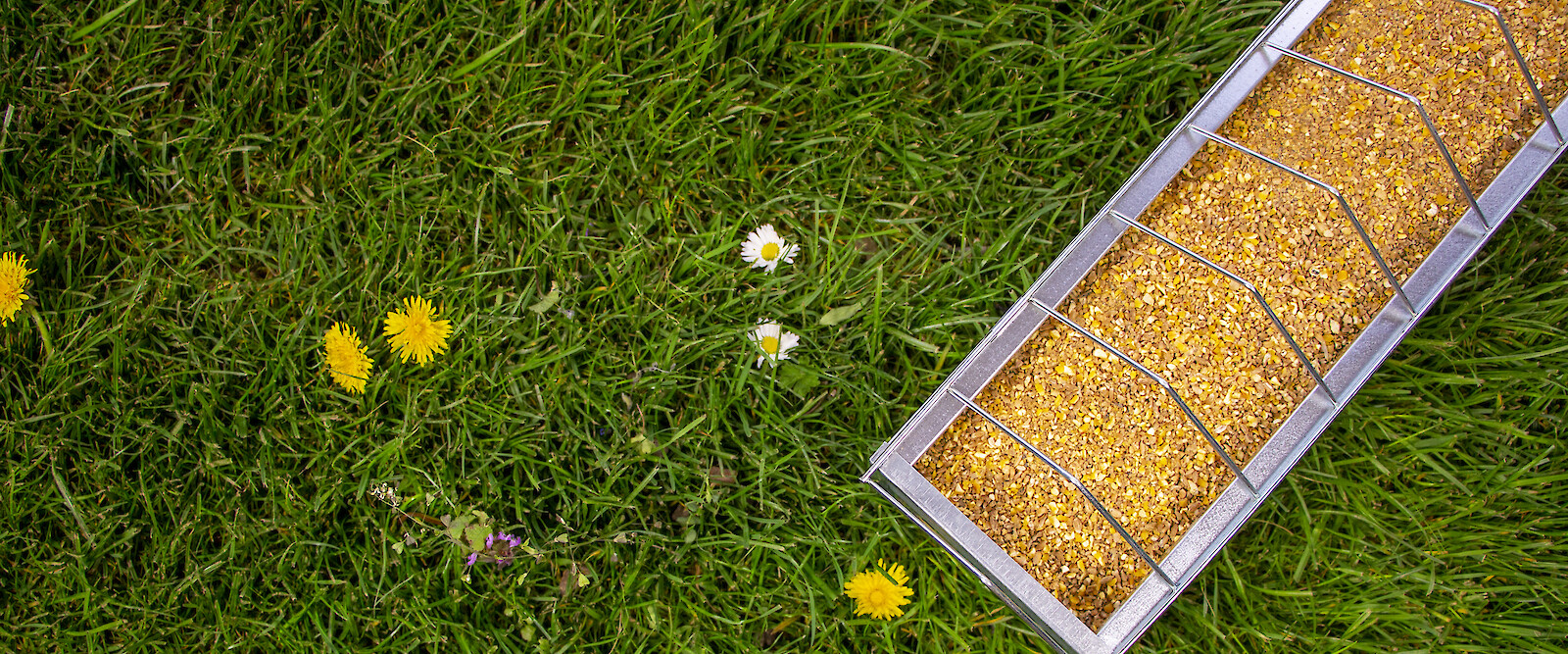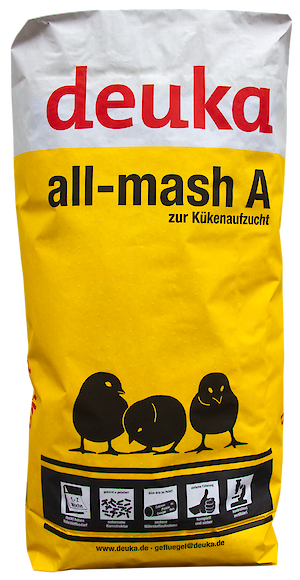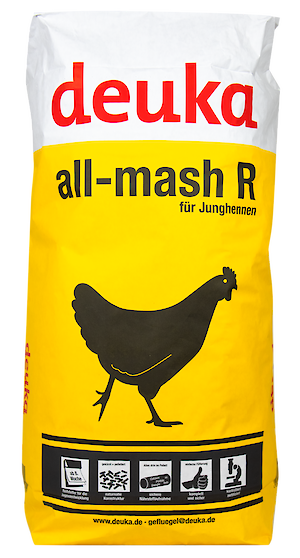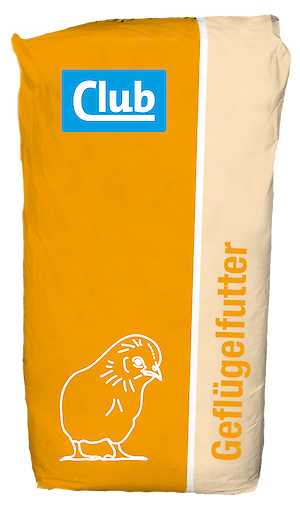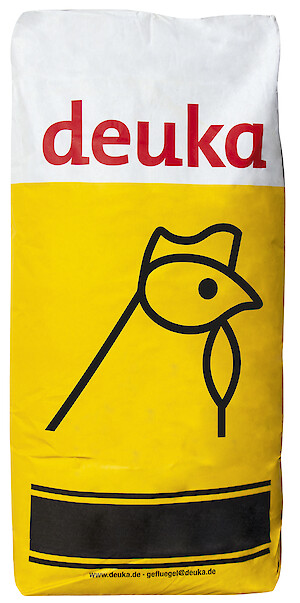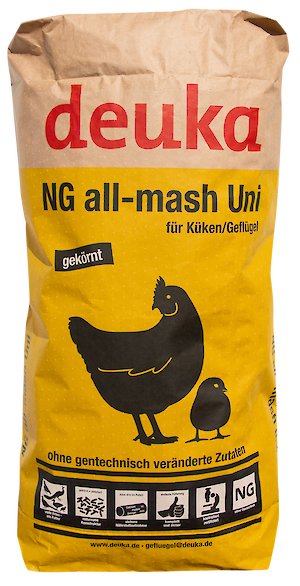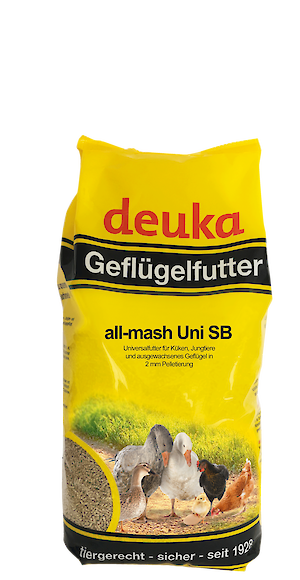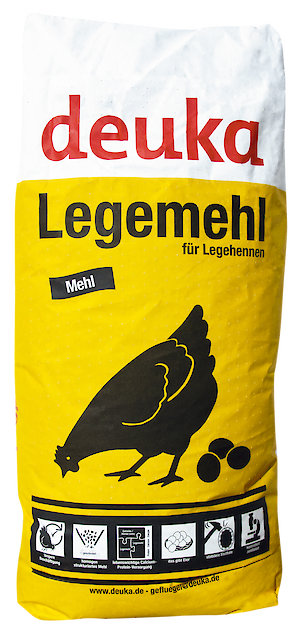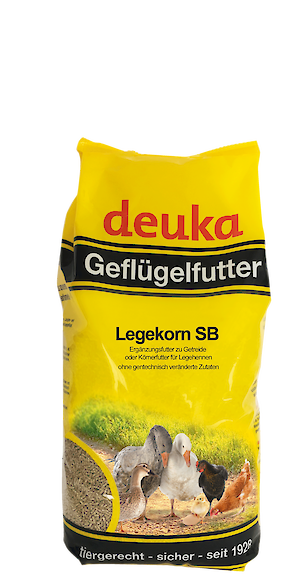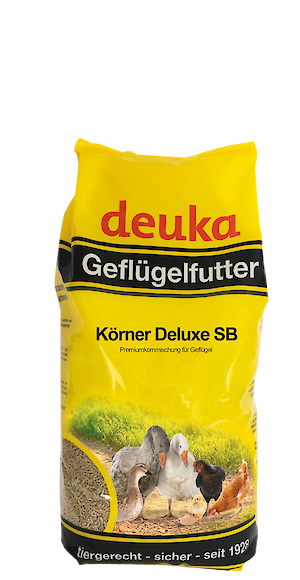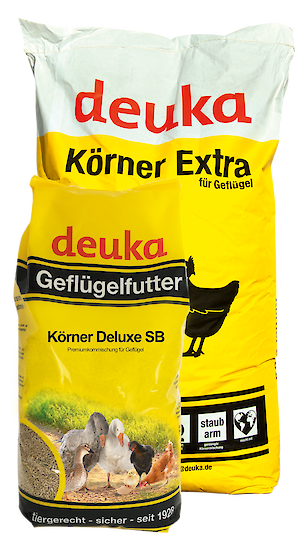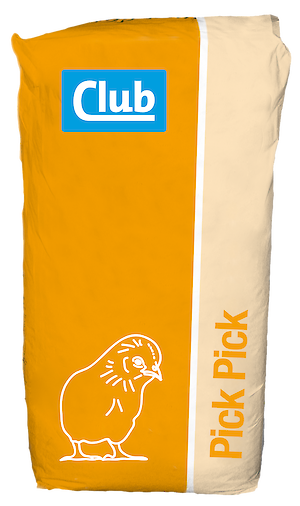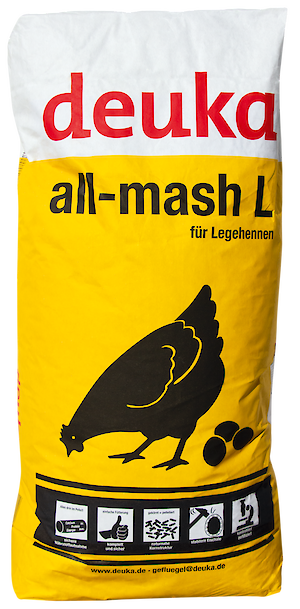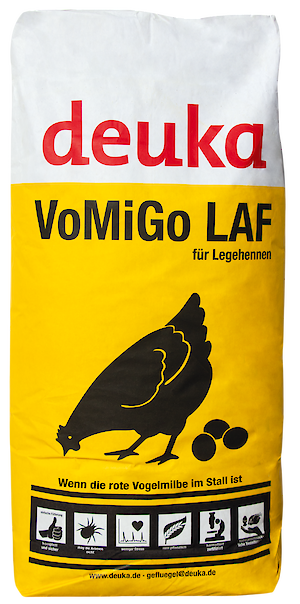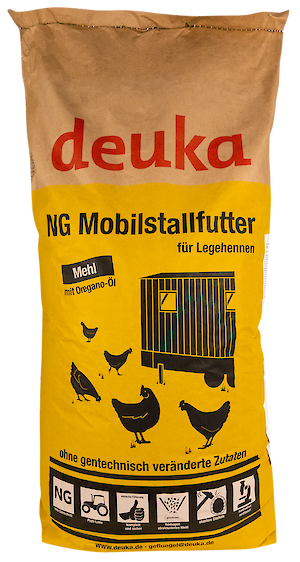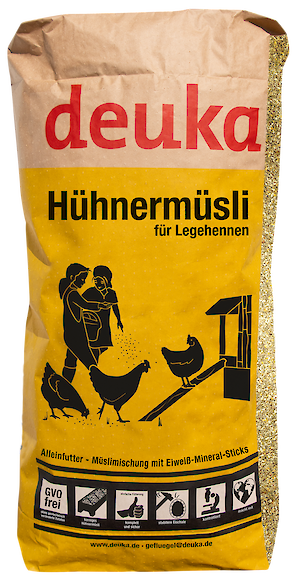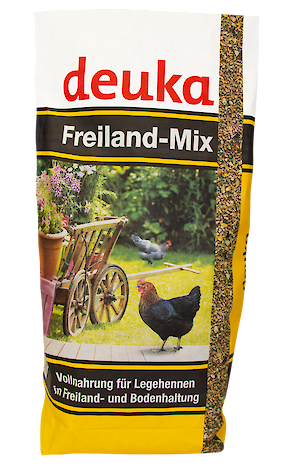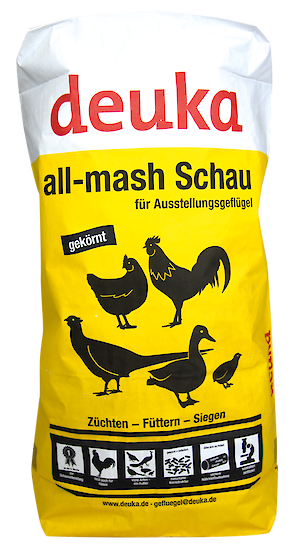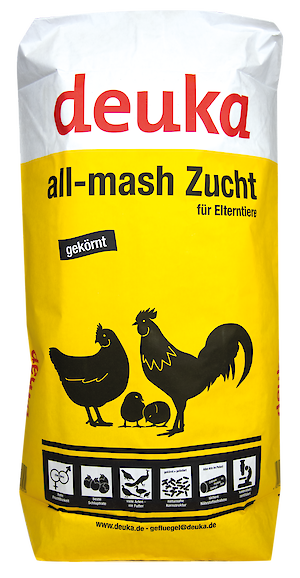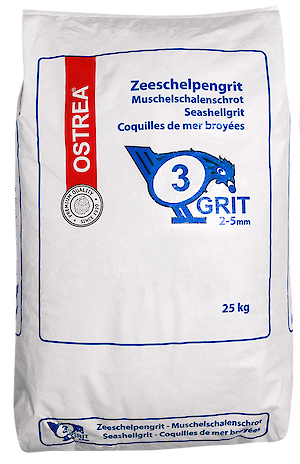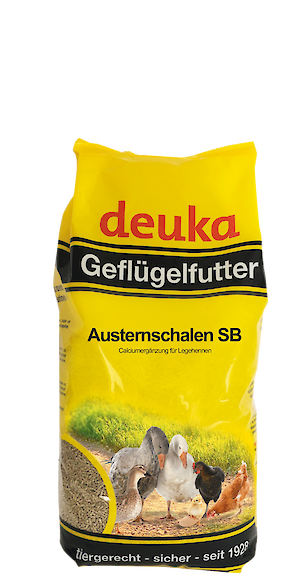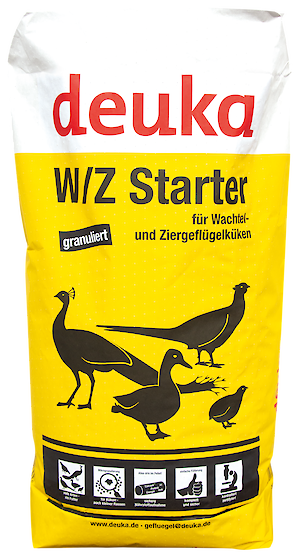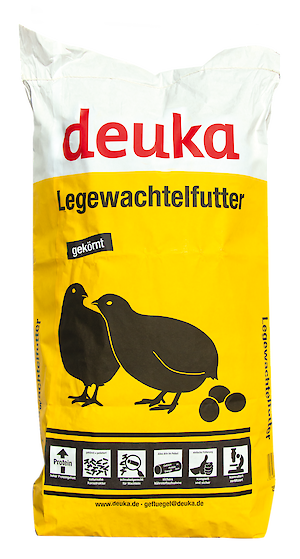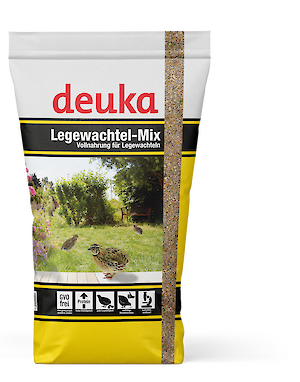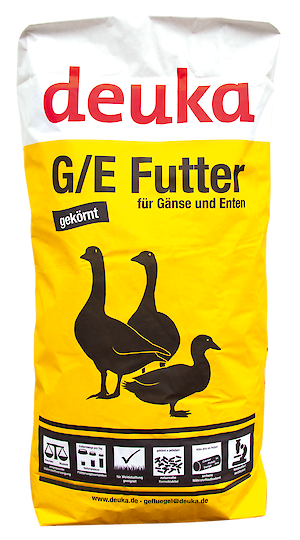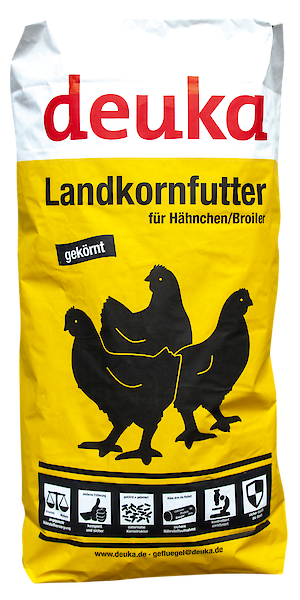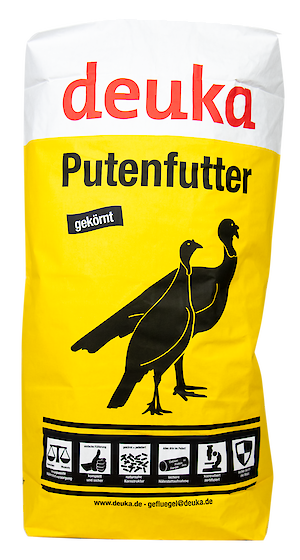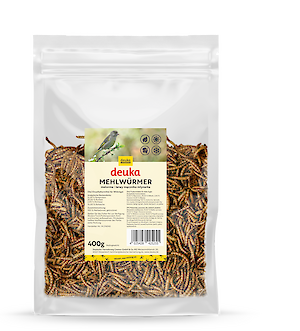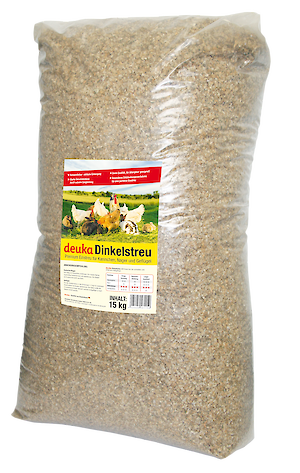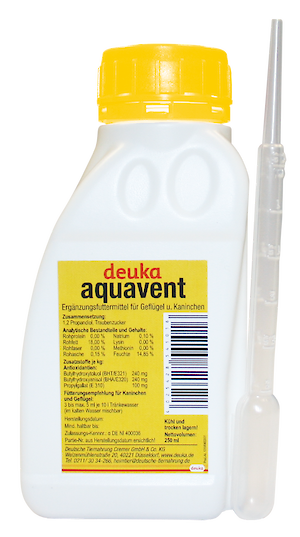NG laying meal / NG laying grain
Supplementary feed for laying hens (without genetic engineering)
- deuka NG laying meal as a structured meal or NG laying grain as a pellet, each without genetic engineering, contain high-quality protein and important amino acids as well as all the necessary vitamins, trace elements and minerals for good egg quality.
- deuka NG laying meal is adapted to supplement deuka extra grains or cereals.
- The NG stands for NonGVO = without genetic engineering. All deuka feeds with the NG designation are VLOG certified. Further details can be found on the website of the VLOG association.
deuka laying meal - That gives eggs!
Feeding recommendation
Supplementary feed for laying hens.
Feed in a ratio of 2:1 with Grains Extra, Grains Deluxe or cereals two weeks before the start of and during the laying period. Towards the end of the laying period (shortly before moulting) and also generally for older laying hens, supplementary feeding of oyster shells in a separate feed container can be useful.
Ideally, laying meal / laying grain should be fed in the morning before the laying period and grain feed in the evening. The daily requirement for a modern laying hen (hybrid with approx. 1.5 kg body weight) is approx. 120 grams per bird per day. This means 80 g of laying meal plus 40 g of grain feed per bird and day.
Always provide fresh drinking water.
Ingredients
| Crude protein | 19,50 % |
| Crude fat | 3,20 % |
| Crude fibre | 2,80 % |
| Crude ash | 18,80 % |
| Lysine | 1,00 % |
| Methionine | 0,42 % |
| Calcium | 5,50 % |
| Phosphorus | 0,60 % |
| Sodium | 0,30 % |
There may be slight deviations in the content of individual nutrients and ingredients between the suppliers.
For individual values, there may be slight deviations in content between the supplier plants.
List of ingredients
Soya extruded meal (steam fermented), maize, wheat, calcium carbonate, monocalcium phosphate, vegetable fatty acids, ZR molasses, sodium chloride
Depending on the production plant, season, availability of goods, etc., slight changes in composition may be possible. The actual recipe and ingredients of the feed can be found on the declaration attached to each feed bag.
Vitamins
| Vitamin A | 13.500.00 I.U./kg |
| Vitamin D3 | 3.750.00 I.U./kg |
| Vitamin E | 30.00 mg/kg |
For individual values, there may be slight deviations in content between the supplier plants.
Trace elements
| Iron | 38.00 mg |
| Iodine | 0.90 mg |
| Copper | 11.00 mg |
| Manganese | 120.00 mg |
| Selenium | 0.30 mg |
| Zinc | 90.00 mg |
For individual values, there may be slight deviations in content between the supplier plants.
More feeds in our assortment

